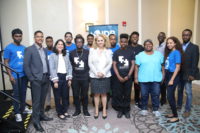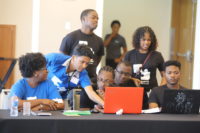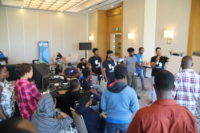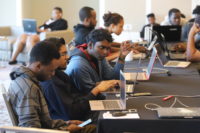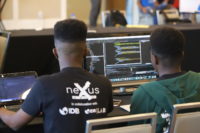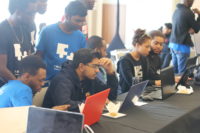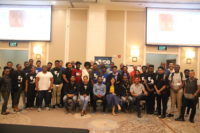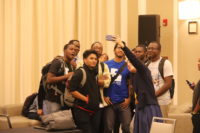Solving social problems together with technology
Unlike a traditional hackathon where developer teams compete, the NeXus Hack-Solve Event brings developers from various teams together to identify, discuss, design, build and solve social problems with technology.
The annual event was designed to promote a culture of collaboration among the local developer community while supporting socially-impacting innovation. Hack-solvers are invited to assume one or more technical or non-technical roles. These roles are:
for creative minds with great ideas
for detailed-oriented minds that expand on concepts and ask the right questions
the UI designer or software architect that knows what good software looks and feels like
the UI developer who is able to build frontend logic and interfaces
the server-side and database developer who builds business logic


Once members of the Hack-Solve team assemble, they execute a three-phase development process which lasts for forty-eight hours with the objective of producing a prototyped solution. The phases of the Hack-Solve event are:
- Problem selection and ideation – problems submitted by the public are reviewed and a selection is made to commence brainstorming of a solution.
- Requirements analysis and solution design – further analysis is carried out on the formulated solution to produce an implementable design.
- Construction and delivery – the technical team gets to work on building and testing the prototype and a final presentation is made to spectators.
The Commercial Hack Solve
In addition, there is a commercial variant of the Hack-Solve which seeks to create business opportunities for developers. The Commercial Hack-Solve invites an organization to submit requirements or problems related to their business operations. The organization is responsible for sponsoring the event which aims to produce a functional prototype which addresses the issue faced by the organization. Thereafter, the collaborating developers comprising the hack-solve team are potentially given the opportunity to produce a production-ready version of the prototype and enter into a service-oriented arrangement with the organization.

